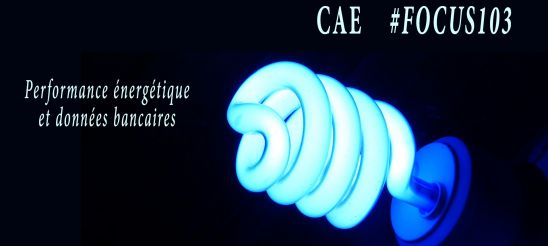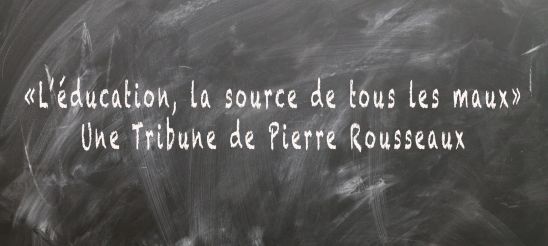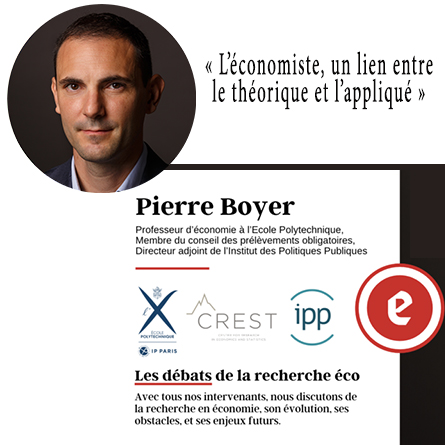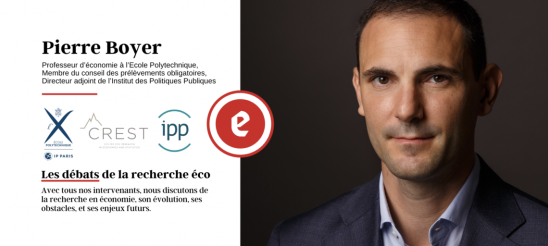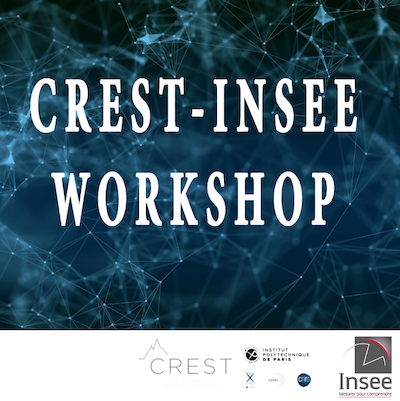Une publication du Le Conseil d’Analyse Économique coécrite par Jeanne Astier, Ariane Salem, Gabrielle Fack, Julien Fournel et Flavie Maisonneuve.
Étude N° 1292 de la DREES, co-écrite par Milena Suarez Castillo, avec la collaboration de David Benatia, Vianney Costemalle et Christine le Thi
“Plus exposés à la pollution de l’air, les jeunes enfants des ménages modestes, plus fragiles, sont les plus affectés”
Étude N° 1292
Parue le 04/01/2024
Résumé:
La Direction de la recherche, des études, de l’évaluation et des statistiques (DREES) publie une étude sur les inégalités de santé chez les jeunes enfants en lien avec la pollution de l’air. Au-delà des différences d’exposition, qui sont en défaveur à la fois des jeunes enfants des ménages les plus aisés et des ménages les plus modestes, il existe de fortes disparités de vulnérabilité vis-à-vis de la pollution de l’air. 10 % des enfants concentrent l’essentiel des effets observables lors d’une augmentation de l’exposition à la pollution de l’air avant leur premier anniversaire, via le recours aux soins en lien avec certaines pathologies respiratoires. Plus souvent dans un moins bon état de santé à la naissance, ils ne sont pas répartis de façon égale sur l’échelle de niveaux de vie des parents : parmi ces enfants les plus affectés, le dixième le plus modeste est 1,6 fois plus représenté que le dixième le plus aisé.
Lien vers la publication complète:
La presse en parle :
Les Echos :
L’Humanité :
Le Parisien :
Étude N° 1292 de la DREES, co-écrite par Milena Suarez Castillo, avec la collaboration de David Benatia, Vianney Costemalle et Christine le Thi
“Plus exposés à la pollution de l’air, les jeunes enfants des ménages modestes, plus fragiles, sont les plus affectés”
Étude N° 1292
Parue le 04/01/2024
Résumé:
La Direction de la recherche, des études, de l’évaluation et des statistiques (DREES) publie une étude sur les inégalités de santé chez les jeunes enfants en lien avec la pollution de l’air. Au-delà des différences d’exposition, qui sont en défaveur à la fois des jeunes enfants des ménages les plus aisés et des ménages les plus modestes, il existe de fortes disparités de vulnérabilité vis-à-vis de la pollution de l’air. 10 % des enfants concentrent l’essentiel des effets observables lors d’une augmentation de l’exposition à la pollution de l’air avant leur premier anniversaire, via le recours aux soins en lien avec certaines pathologies respiratoires. Plus souvent dans un moins bon état de santé à la naissance, ils ne sont pas répartis de façon égale sur l’échelle de niveaux de vie des parents : parmi ces enfants les plus affectés, le dixième le plus modeste est 1,6 fois plus représenté que le dixième le plus aisé.
Lien vers la publication complète:
La presse en parle :
Les Echos :
L’Humanité :
Le Parisien :
Une tribune de Pierre Rousseaux, Cofondateur d’Oeconomicus, doctorant au CREST et économiste à l’IPP, pour le journal L’Opinion
Publié le 4 janvier 2024
Une tribune de Pierre Rousseaux, Cofondateur d’Oeconomicus, doctorant au CREST et économiste à l’IPP, pour le journal L’Opinion
Publié le 4 janvier 2024
Interview de Pierre Boyer, nominé du Prix du Meilleur Jeune Economiste Français 2023 par Pierre Rousseaux pour le journal Oeconomicus
Interview de Pierre Boyer, nominé du Prix du Meilleur Jeune Economiste Français 2023 par Pierre Rousseaux pour le journal Oeconomicus
A look back at the CREST-INSEE workshop
On Wednesday 29th November, CREST welcomed for the first time the annual CREST-INSEE Workshop. The first workshop was held at INSEE, and the aim is now to make it an annual event held every two years at each institution.
Presentations were held by scientific personalities from CREST and D2E:
• Estimating Cross-Border Tobacco Purchases in France, Mélina Hillion (D2E)
• Firm Moral Hazard in Short-Time Work, Alice Lapeyre (CREST)
• Energy Cost Pass-Through: Evidence from French Manufacturers, Raphaël Lafrogne Joussier (D2E) (joint work with Julien Martin and Isabelle Méjean)
• Welfare Effects of Increasing Transfers to Young Adults: Theory and Evidence, Marion Brouard (CREST)
• Flood Risk and Residential Mobility in France, Julie Sixou (D2E) (joint with Christine Le Thi and Katrin Millock)
• Too Constrained to Grow. Analysis of Firms’ Response to the Alleviation of Skill Shortages, Sara Signorelli (CREST) (joint work with F. Fontaine)
The purpose of this workshop is to encourage and develop exchanges and research projects between CREST and the Economic Studies Department of INSEE. In front of a large audience, high-quality presentations on economic topics of wide interest (trade, environment, public economics, …) provided an opportunity to exchange views and ideas. A real success!
COP28: Feedbacks from Patricia Crifo, researcher in Climate and Environmental Economics
Patricia Crifo, researcher at CREST-École polytechnique, recently participated at COP28, for the second time, held in Dubai.
Why did COP was created in the first place?
COP means “Conference of the Parties”. It is a governance body where the States party to an international convention meet. The most high-profile COP is the one on climate change, the annual meeting of the States party to the United Nations Framework Convention on Climate Change (UNFCCC). There are other COPs, such as the COP of the Convention on Biological Diversity (signed in 1992), COP15 in Montreal in December 2022.
What were the objectives of the COP28?
COP28 was held in Dubai (UAE) from 30/11 to 12/12.
There were encouraging signs on three fronts in particular.
The first important signal was the creation of a fund for loss and damage on the very first day, and the many pledges of funding.
Another key point of this COP was the Global Assessment, a key moment in the implementation of the Paris Agreement.
Finally, there is the question of the transition away from fossil fuels.
Concerning climate finance: The “Loss and Damage” Fund is a compensation fund designed to give vulnerable countries that have suffered climate damage access to financing to repair and rebuild. Needs are estimated at $150-300bn/year between now and 2030. The text provides for a system for allocating resources (managed by the World Bank), with a minimum percentage for the least developed countries and small islands. France has announced that it will contribute 100 million euros.
With regard to the assessment, this is the first global assessment of the commitments made by countries since the 2015 Paris agreements, and it should set a new course for climate action by countries. From 2023, this global review will take place every 5 years.
It’s a new course because progress is expected on: the ambition of their climate plans, known as nationally determined contributions (NDCs), but also the global objective for adaptation to climate change and the new climate financing objective for the post-2025 period.
On the issue of the transition away from fossil fuels, a historic agreement was reached in Dubai this year. Can you tell us more about it?
Progress was expected on the issue of fossil fuels, with a major battle over terminology (reducing or phasing out fossil fuels). The approval by consensus on Wednesday 13 December of the final text calling for a “transition” away from fossil fuels is an important step.
How important is the voice of researchers and institutions such as École polytechnique during this event?
The École polytechnique (X) has RINGO (research independent non-governmental organisation) status, which gives it observer status, not negotiator status.
Admission to the UNFCCC as an observer enables X to build up its expertise in the UNFCCC process, to train students with direct experience of negotiations and to contribute as a member of the RINGO group. It is also a direct contribution to the process of mobilising French higher education institutions in the UNFCCC.
Members of the delegation participate in side events, which are a platform for admitted observer organisations to engage with Parties and other participants to advance and share knowledge, and explore a range of feasible options to address the climate challenge. These events cover important topics and are an opportunity to mobilise stakeholders, academics, staff and students.
Side events and exhibitions are organized by observer organisations (NGOs and IGOs), parties in partnership with observers, UNFCCC divisions, UN organisations and specialised agencies. By participating in side events, these organisations present their work or encourage discussions on key issues, often engaging the audience in a question-and-answer session.
What significant advances in research and teaching have been made possible by your participation in COP28?
I was only at COP28 for 3 days, but I took part in 3 side events, including one on educational issues, in partnership with the IPCC and the Université Cote d’Azur. The aim was to examine how education can be transformed to empower young people and strengthen their participation in the science of climate change and the IPCC process. I presented the actions we are taking at the Ecole Polytechnique to mobilise our students (COPClimat course in the ESCLIP Masters – Economics for smart cities and climate policy, E4C annual challenges etc).
I also took part in two side events on the impact of university partnerships on the decarbonization of ecosystems.
At Institut Polytechnique de Paris (IP Paris), we have several initiatives and institutional partnerships in which our students have a key role to play. For example, the École polytechnique entered into a partnership with the city of Paris in 2019 (being renewed in 2024), under which ESCLIP master’s students assess all dimensions of Paris’s climate action plans and make recommendations to policymakers.
Similarly, the interdisciplinary Energy4Climate centre (E4C) regularly organises a student challenge for students from 9 institutions to reflect on and propose solutions for carbon neutrality and contribute to the fight against climate change.
Finally, the Sustainable Finance and Responsible Investment (FDIR) research initiative, supported since 2007 by a dozen sponsors (investors and asset managers), which aims to broaden the scope of financial theories and practices to take greater account of the social environment and sustainable development in corporate governance, funds a number of research projects on climate and sustainable finance.
COP28: Feedbacks from Patricia Crifo, researcher in Climate and Environmental Economics
Patricia Crifo, researcher at CREST-École polytechnique, recently participated at COP28, for the second time, held in Dubai.
Why did COP was created in the first place?
COP means “Conference of the Parties”. It is a governance body where the States party to an international convention meet. The most high-profile COP is the one on climate change, the annual meeting of the States party to the United Nations Framework Convention on Climate Change (UNFCCC). There are other COPs, such as the COP of the Convention on Biological Diversity (signed in 1992), COP15 in Montreal in December 2022.
What were the objectives of the COP28?
COP28 was held in Dubai (UAE) from 30/11 to 12/12.
There were encouraging signs on three fronts in particular.
The first important signal was the creation of a fund for loss and damage on the very first day, and the many pledges of funding.
Another key point of this COP was the Global Assessment, a key moment in the implementation of the Paris Agreement.
Finally, there is the question of the transition away from fossil fuels.
Concerning climate finance: The “Loss and Damage” Fund is a compensation fund designed to give vulnerable countries that have suffered climate damage access to financing to repair and rebuild. Needs are estimated at $150-300bn/year between now and 2030. The text provides for a system for allocating resources (managed by the World Bank), with a minimum percentage for the least developed countries and small islands. France has announced that it will contribute 100 million euros.
With regard to the assessment, this is the first global assessment of the commitments made by countries since the 2015 Paris agreements, and it should set a new course for climate action by countries. From 2023, this global review will take place every 5 years.
It’s a new course because progress is expected on: the ambition of their climate plans, known as nationally determined contributions (NDCs), but also the global objective for adaptation to climate change and the new climate financing objective for the post-2025 period.
On the issue of the transition away from fossil fuels, a historic agreement was reached in Dubai this year. Can you tell us more about it?
Progress was expected on the issue of fossil fuels, with a major battle over terminology (reducing or phasing out fossil fuels). The approval by consensus on Wednesday 13 December of the final text calling for a “transition” away from fossil fuels is an important step.
How important is the voice of researchers and institutions such as École polytechnique during this event?
The École polytechnique (X) has RINGO (research independent non-governmental organisation) status, which gives it observer status, not negotiator status.
Admission to the UNFCCC as an observer enables X to build up its expertise in the UNFCCC process, to train students with direct experience of negotiations and to contribute as a member of the RINGO group. It is also a direct contribution to the process of mobilising French higher education institutions in the UNFCCC.
Members of the delegation participate in side events, which are a platform for admitted observer organisations to engage with Parties and other participants to advance and share knowledge, and explore a range of feasible options to address the climate challenge. These events cover important topics and are an opportunity to mobilise stakeholders, academics, staff and students.
Side events and exhibitions are organized by observer organisations (NGOs and IGOs), parties in partnership with observers, UNFCCC divisions, UN organisations and specialised agencies. By participating in side events, these organisations present their work or encourage discussions on key issues, often engaging the audience in a question-and-answer session.
What significant advances in research and teaching have been made possible by your participation in COP28?
I was only at COP28 for 3 days, but I took part in 3 side events, including one on educational issues, in partnership with the IPCC and the Université Cote d’Azur. The aim was to examine how education can be transformed to empower young people and strengthen their participation in the science of climate change and the IPCC process. I presented the actions we are taking at the Ecole Polytechnique to mobilise our students (COPClimat course in the ESCLIP Masters – Economics for smart cities and climate policy, E4C annual challenges etc).
I also took part in two side events on the impact of university partnerships on the decarbonization of ecosystems.
At Institut Polytechnique de Paris (IP Paris), we have several initiatives and institutional partnerships in which our students have a key role to play. For example, the École polytechnique entered into a partnership with the city of Paris in 2019 (being renewed in 2024), under which ESCLIP master’s students assess all dimensions of Paris’s climate action plans and make recommendations to policymakers.
Similarly, the interdisciplinary Energy4Climate centre (E4C) regularly organises a student challenge for students from 9 institutions to reflect on and propose solutions for carbon neutrality and contribute to the fight against climate change.
Finally, the Sustainable Finance and Responsible Investment (FDIR) research initiative, supported since 2007 by a dozen sponsors (investors and asset managers), which aims to broaden the scope of financial theories and practices to take greater account of the social environment and sustainable development in corporate governance, funds a number of research projects on climate and sustainable finance.

